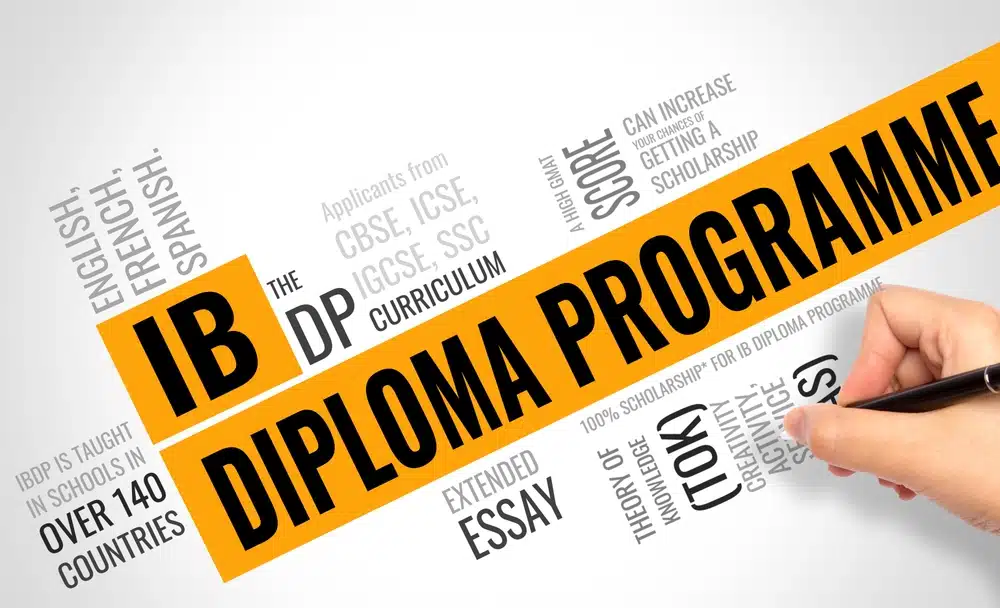All About the International Baccalaureate (IB)
The International Baccalaureate program, popularly known as the IB, is a globally recognized education program. In this article, we aim to provide you with a detailed understanding of the IB, including its origin, philosophy, structure, benefits, and challenges.
Understanding the International Baccalaureate
The International Baccalaureate (IB) is a non-profit educational foundation committed to developing intellectual, personal, emotional, and social skills for students worldwide. The program is internationally acknowledged and accepted, offering a unique educational experience and approach.
With a focus on holistic development, the IB aims to nurture well-rounded individuals who are not only academically competent but also possess the necessary skills to thrive in an ever-changing global society. By providing a comprehensive curriculum and a rigorous assessment framework, the IB equips students with the tools they need to succeed in their future endeavors.
The Origins of the IB Program
The IB program was born out of a post-war desire to foster peace and understanding between nations. It originated in 1968 in Geneva, Switzerland, with the launch of the IB Diploma Program (DP). The mission was to create a program that would enable the mobility of students by providing them with a curriculum and diploma recognized by universities worldwide.
Since its inception, the IB has grown exponentially, with schools in over 150 countries offering its programs. The IB’s commitment to international-mindedness and global citizenship has made it a popular choice among parents and educators seeking a comprehensive and inclusive education for their children.
Furthermore, the IB’s emphasis on intercultural understanding and respect for others has played a crucial role in promoting a sense of unity and cooperation among students from diverse backgrounds. Through its curriculum, the IB encourages students to explore different cultures, languages, and perspectives, fostering a deep appreciation for the richness and diversity of the world we live in.
The Philosophy Behind the IB
At the core of the International Baccalaureate (IB) program is a commitment to improve student learning through high standards and rigorous assessments. The IB continues its philosophy of promoting students’ personal and academic growth by encouraging critical thinking, intercultural understanding, and respect for others and the environment.
One of the key aspects of the IB philosophy is its learner-centered approach. The program recognizes that each student is unique and has their own strengths, interests, and learning styles. As such, the IB provides a flexible framework that allows students to tailor their educational experience to suit their individual needs and aspirations.
Moreover, the IB places great importance on developing students’ skills beyond the traditional academic subjects. Through its emphasis on creativity, communication, collaboration, and critical thinking, the IB aims to foster the development of well-rounded individuals who are equipped to tackle the challenges of the 21st century.
By encouraging students to engage in independent research, community service, and extracurricular activities, the IB instills in them a sense of responsibility and a desire to make a positive impact on their communities and the world at large.
In conclusion, the International Baccalaureate program offers students a comprehensive and enriching educational experience. With its focus on holistic development, intercultural understanding, and rigorous assessments, the IB equips students with the skills and knowledge they need to thrive in an increasingly interconnected and complex world.
The Structure of the IB Program
The innovatively designed International Baccalaureate (IB) program is divided into four structured, progressive stages specifically for distinct age groups. Each stage is carefully crafted to provide a comprehensive and enriching educational experience.
Primary Years Programme (PYP)
The Primary Years Programme is designed for children aged 3-12. At this stage, the focus is on the holistic development of a child’s potential, nurturing their curiosity, and fostering a love of learning. Through a combination of inquiry-based learning, hands-on activities, and collaborative projects, students are encouraged to explore and discover the world around them. The PYP curriculum covers a wide range of subjects, including language and literature, mathematics, science, social studies, arts, and physical education. By engaging in meaningful and relevant learning experiences, students develop essential skills such as critical thinking, communication, and problem-solving.
Furthermore, the PYP promotes the development of positive attitudes and attributes, such as empathy, respect, and open-mindedness. Students are encouraged to become active participants in their own learning, taking ownership of their education and developing a sense of responsibility towards themselves and others. The PYP also places a strong emphasis on developing international-mindedness and fostering an appreciation for different cultures, perspectives, and languages.
Middle Years Programme (MYP)
For students aged 11-16, the Middle Years Programme is designed. It builds upon the foundation laid in the PYP and encourages students to make practical connections between their studies and the real world, preparing them for the intellectual challenges of further education. The MYP curriculum is organized into eight subject groups: language and literature, language acquisition, individuals and societies, sciences, mathematics, arts, physical and health education, and design. Through interdisciplinary learning, students are able to explore connections between different subjects and develop a holistic understanding of the world.
In addition to the academic subjects, the MYP also focuses on the development of key skills such as critical and creative thinking, communication, and collaboration. Students engage in projects and assessments that require them to apply their knowledge and skills in authentic contexts, fostering a deeper understanding of the subject matter. The MYP also promotes the development of personal and social skills, encouraging students to become reflective, responsible, and compassionate individuals.
Diploma Programme (DP)
The Diploma Program is designed for students aged 16-19 years and emphasizes intellectual development, cultural understanding, and humanitarian values. Starting from this stage, the program allows students to choose subjects according to their goals and interests. The DP curriculum is structured around six subject groups: studies in language and literature, language acquisition, individuals and societies, sciences, mathematics, and the arts. Students also engage in the Theory of Knowledge (TOK) course, which explores the nature of knowledge and its implications across different disciplines.
One of the unique features of the DP is the Extended Essay, a self-directed research project that allows students to delve deep into a topic of their choice. This extended piece of academic writing helps students develop research and analytical skills, preparing them for the demands of higher education. Additionally, the DP requires students to engage in Creativity, Activity, and Service (CAS) activities, encouraging them to explore their passions, contribute to their communities, and develop a well-rounded personality.
Career-related Programme (CP)
Lastly, the Career-related Programme is a framework of international education that incorporates the vision and educational principles of the International Baccalaureate (IB) into a unique program addressing the needs of students preparing for higher education and careers. The CP combines academic subjects with career-related studies, enabling students to develop both theoretical knowledge and practical skills in their chosen field. The program also includes a personal and professional skills course, which focuses on developing essential skills such as communication, critical thinking, and problem-solving.
Through a combination of academic study, career-related learning, and personal development, the CP equips students with the skills and knowledge necessary to succeed in their chosen career path. It provides a solid foundation for further education, whether students choose to pursue a university degree or enter the workforce directly. The CP also emphasizes the importance of ethical decision-making, social responsibility, and global citizenship, preparing students to make a positive impact in the world.
The Benefits of the IB Program
As an internationally recognized certification, the IB offers numerous advantages, ranging from intellectual development to personal growth.
When it comes to academic advantages, the IB diploma is truly unparalleled. Not only is it globally recognized and esteemed by universities around the world, but its rigorous curriculum also prepares students excellently for post-secondary studies. In fact, many universities even offer course credits to IB graduates, giving them a head start in their academic journey. The IB program encourages analytical thinking, research, and improved writing skills, effectively acting as a springboard for university studies.
However, the benefits of the International Baccalaureate (IB) program extend far beyond academics. It also provides students with incredible personal development opportunities. One of the key aspects of the program is its emphasis on the overall development of students. It promotes awareness and appreciation of different cultures, encouraging students to become global citizens who are equipped to navigate an increasingly interconnected world. By exposing students to diverse perspectives and experiences, the IB program fosters a sense of empathy and understanding that is essential in today’s global society.
Moreover, the IB program recognizes the importance of holistic growth. It goes beyond traditional academic subjects and also promotes creativity, activity, and service. Through engaging in creative endeavors, participating in physical activities, and actively serving their communities, students are able to develop a well-rounded set of skills and qualities. This focus on holistic development ensures that IB students not only excel academically but also become well-rounded individuals who are prepared to make a positive impact in the world.
In conclusion, the IB program offers a multitude of benefits that extend beyond the classroom. From its rigorous academic curriculum to its emphasis on personal growth and development, the IB program equips students with the skills, knowledge, and mindset necessary to thrive in an increasingly globalized world. Whether it’s preparing students for university studies or fostering a sense of global citizenship, the IB program truly sets students up for success in all aspects of life.
The Challenges of the IB Program
Despite the many advantages, the International Baccalaureate (IB) program can present some challenges that potential learners should be aware of.
One of the main challenges of the IB program is the academic rigor and the need for effective time management. The IB curriculum is known for its demanding nature, requiring students to excel in multiple subjects simultaneously. This level of academic intensity necessitates excellent time management and organizational skills. Students must learn to juggle the workload for different subjects, along with their involvement in extra-curricular activities and self-directed projects. Developing effective time management strategies becomes crucial for success in the program.
Moreover, the IB program comes with a notable price tag. While the quality of education it offers is undeniable, the cost may limit the program’s accessibility for some families. The expenses associated with tuition fees, textbooks, and other materials can add up quickly, making it challenging for certain individuals to afford the program. This financial barrier can prevent deserving students from participating in the IB program and benefiting from its unique educational opportunities.
In addition to the financial aspect, another challenge is the limited accessibility of the IB program. While the IB is widely recognized and respected, not all educational institutions or regions offer the program. This lack of availability can be a significant obstacle for students who are interested in pursuing the IB curriculum but do not have access to it in their local area. It may require them to relocate or commute long distances to attend a school that offers the program, which can be logistically and financially burdensome.
How to Choose Between IB and Other Curriculums
Choosing the right curriculum for your education is a crucial decision that can shape your future. While the International Baccalaureate (IB) comes with its distinctive set of advantages, whether it’s the right fit depends significantly on individual student goals and capabilities. To help you make an informed choice, let’s explore and compare the IB curriculum with other popular curriculums.
Comparing IB with A-Levels
The A-levels, or Advanced levels, are subject-specific qualifications popular in the UK and other countries. They provide more depth in chosen subjects, allowing students to specialize early on. In contrast, the IB requires a broader range of subjects to be studied, promoting a more well-rounded education. This breadth of subjects ensures that students develop a holistic understanding of various disciplines, enabling them to make connections between different areas of knowledge. It also encourages critical thinking and problem-solving skills, which are highly valued in today’s interconnected world.
Furthermore, the IB curriculum places a strong emphasis on developing students’ research and writing skills through the Extended Essay component. This extended research project allows students to delve deep into a topic of their choice, fostering independent thinking and academic rigor. In comparison, A-levels focus more on exams, with less emphasis on continuous assessment and independent research.
Comparing IB with AP Courses
Advanced Placement (AP) courses are US-based programs offering college-level courses in high school. Like the International Baccalaureate (IB), they are internationally recognized and can provide students with a head start in their higher education journey. However, there are some key differences between the two.
One significant difference is the flexibility in choosing subjects. AP courses allow students to select specific subjects they are interested in, enabling them to tailor their education to their passions and career aspirations. On the other hand, the IB presents a more comprehensive, all-encompassing education plan. It requires students to study a range of subjects, including languages, sciences, humanities, and mathematics, ensuring a well-rounded education that prepares students for a diverse range of academic and professional paths.
Moreover, the IB curriculum incorporates the Theory of Knowledge (TOK) component, which explores the nature of knowledge and encourages students to critically analyze different ways of knowing. This interdisciplinary approach fosters a deeper understanding of the connections between different subjects and encourages students to question assumptions and biases. While AP courses provide a rigorous academic experience, they may not offer the same level of interdisciplinary exploration as the IB.
In conclusion, the IB offers a unique, comprehensive, and globally recognized education program. It promotes intellectual and personal development, preparing students for a future in a globalized world. However, it is essential to consider your needs, ambitions, and capabilities when choosing an educational pathway. Whether you opt for the specialization of A-levels, the flexibility of AP courses, or the holistic approach of the IB, remember that your education is a journey of self-discovery and growth.









































